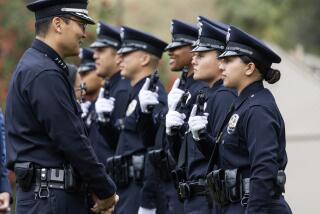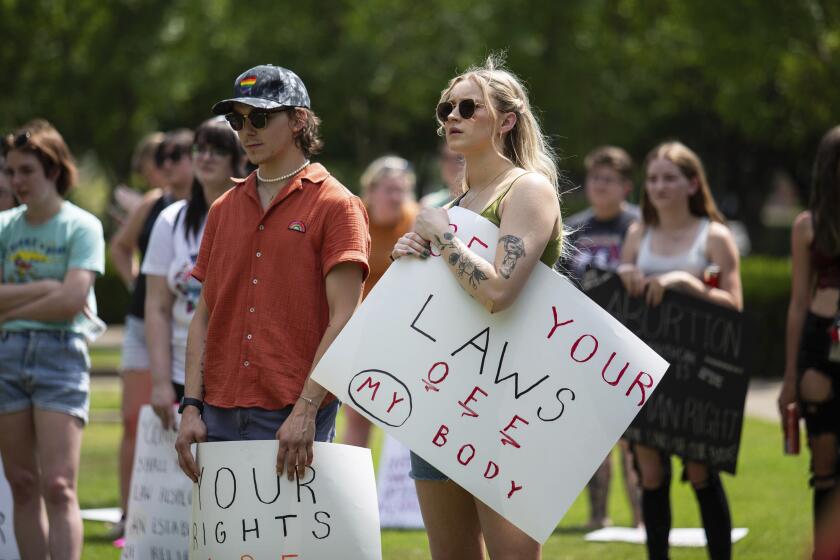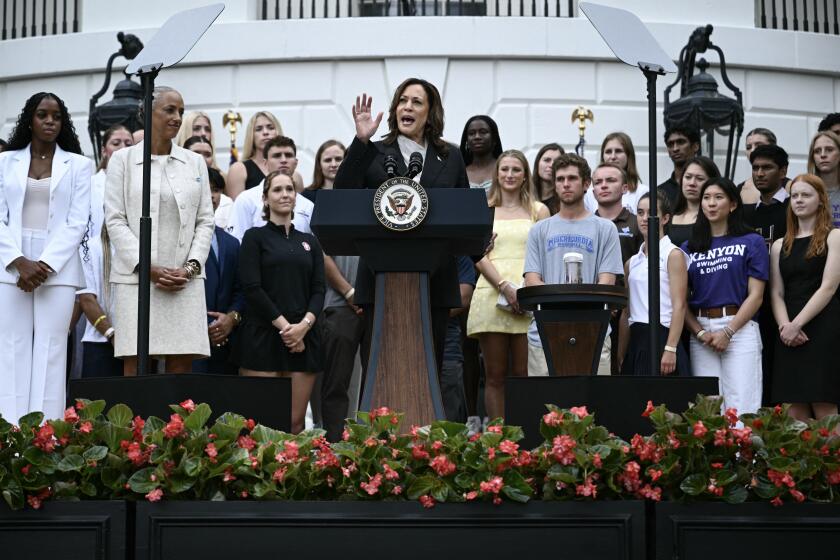Editorial: California is on the verge of three important steps toward police accountability
Californians have lost much of their former ability to monitor the performance of police officers and agencies, due in large part to a series of unfavorable court rulings and to the timidity of elected leaders who repeatedly bowed to pressure from law enforcement labor unions. The Legislature now has taken up a modest yet valuable bill that would allow the public to learn which officers fired their weapons, used other serious force or lied about their actions. Senate Bill 1421 has cleared the Senate and deserves Assembly approval.
Access to such information is essential — and is readily available to the public in one form or another in more than half the states. But not in this one. Without such data, it is nearly impossible to learn which officers account for disproportionate injuries, deaths and public liability. Nor is it possible to determine whether agencies operate effective internal investigations and unbiased disciplinary systems. That leaves police departments shockingly free of real oversight from the public they serve.
Officers contend that their personnel files are their own business and should be as shielded from outside scrutiny as those of teachers, sanitation workers and any other public employees. And officers do indeed deserve a measure of privacy, as do the rest of us.
Unlike teachers and sanitation workers, though, law enforcement officers take up badges and weapons and are uniquely granted the authority to arrest or even kill in the name of the law. In return, some modicum of access to police records is required to prevent abuse of that enormous power.
The bill, authored by Democrat Nancy Skinner of Berkeley, is so measured that the state’s district attorneys have dropped their opposition. It would make public the currently confidential reports that police departments prepare on a variety of incidents involving officers, including discharging a firearm or using a Taser or other electroshock weapon, striking a person on the head or neck or taking any action that results in serious injury or death.
Some modicum of access to police records is required to prevent abuse of [their] enormous power.
Access also would be granted to records that show an officer sexually assaulted a member of the public, or lied or falsified evidence in the course of a police investigation or criminal prosecution.
Today, these sorts of records are available almost exclusively to defendants in criminal cases — in order to help them establish that the officers involved in their prosecution have a history of misconduct.
The Skinner bill would allow any member of the public to seek this information by filing a Public Records Act request.
In addition to Skinner’s bill, lawmakers should send Gov. Jerry Brown two other worthy bills dealing with public disclosure of police matters, including surveillance technologies such as license plate readers and drones.
Under SB 1186 by San Mateo Democrat Jerry Hill, which also recently passed out of the Senate, police departments wouldn’t be able to use drones or other surveillance technology without a city council, police commission or other public body first adopting a deployment policy at an open meeting at which the public has an opportunity to weigh in.
Police would still be able to snoop, and they would still be able to spend public money to do so. But they at least would be required to disclose how they’re doing it. Without safeguards and disclosure, police power is too intrusive and is insufficiently balanced by accountability to the public.
Even with the disclosure that Hill proposes, which is similar to the process used by the Los Angeles Police Commission in its drone program, some opponents of the bill argue that any surveillance is abusive. But, of course, the bill does not require police surveillance; it merely attempts to keep it from being excessively secret.
Assembly Bill 3131 by Democratic Assemblymen Todd Gloria of San Diego and David Chiu of San Francisco would require a similar public process before a police agency could acquire surplus military equipment. That move would restore in California an approach that was put in place nationwide by the Obama administration but then was rescinded by President Trump. Currently, police chiefs (even school police) can accept U.S. military equipment, such as grenade launchers, without requiring any training or deployment plan. As a result, too many routine police operations, such as delivering search warrants or controlling crowds, have become virtual military exercises in which police use equipment and tactics more suited to occupying armies than to peace officers.
None of the three bills would prevent police from doing their work, but would merely ensure that they do it openly. They are all important adjustments in the relationship between those employed to protect the public, and the public itself.
Follow the Opinion section on Twitter @latimesopinion and Facebook.
More to Read
A cure for the common opinion
Get thought-provoking perspectives with our weekly newsletter.
You may occasionally receive promotional content from the Los Angeles Times.






